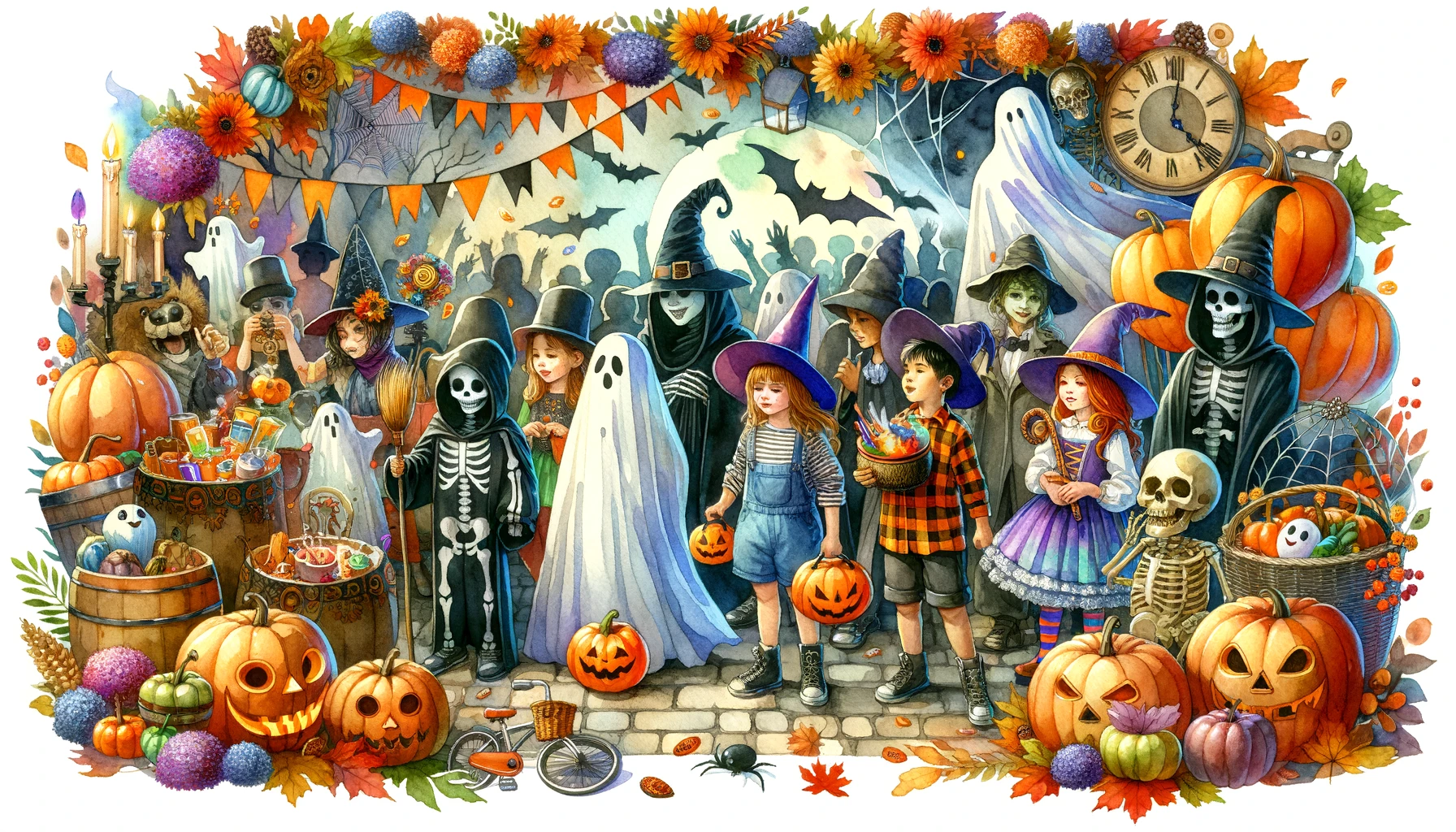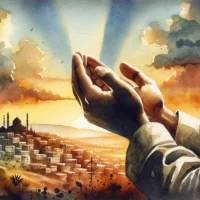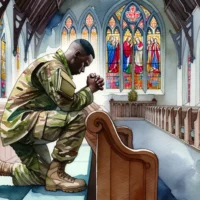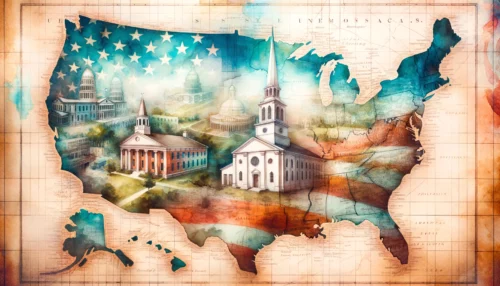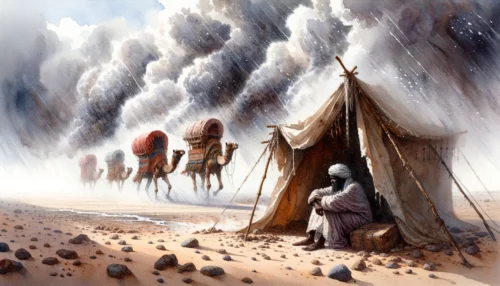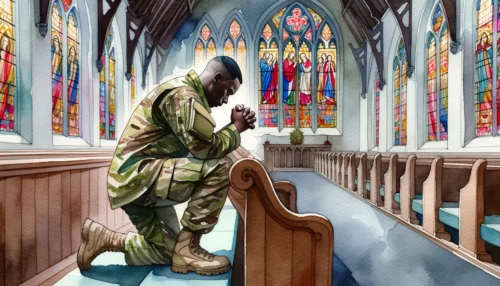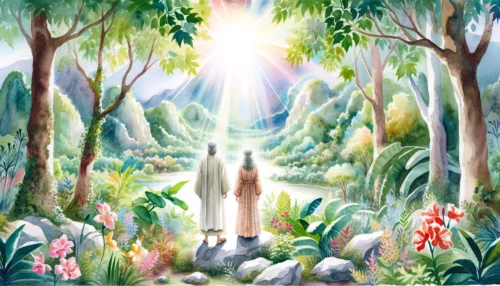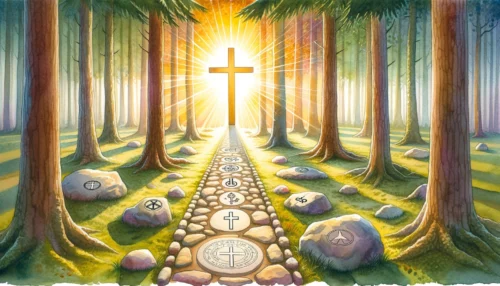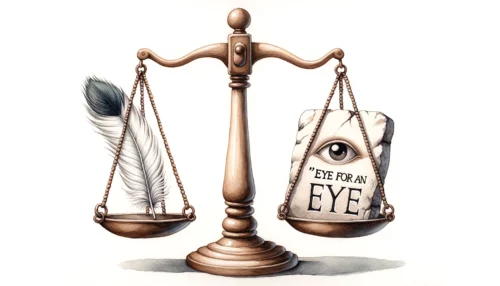Every year as October 31st approaches, many Christians grapple with the decision of how to approach Halloween. Historically rooted in pagan traditions yet widely celebrated in contemporary culture, it’s a holiday that can stir mixed feelings. It’s essential to understand Halloween’s origins, the concerns some Christians have, and how we can respond in a way that honors our faith.
The Historical Origins of Halloween
The roots of Halloween trace back over 2,000 years to the ancient Celtic festival of Samhain. Celebrated on the night of October 31st, the Celts believed that on this night, the boundary between the living and the dead was blurred. This meant that spirits of the deceased would return to the earth, causing trouble and damaging crops. To ward off these spirits, the Celts would light bonfires and wear costumes, often made of animal heads and skins.
Centuries later, with the spread of Christianity throughout Europe, many pagan traditions were absorbed and adapted into Christian practices. November 1st was designated as All Saints’ Day by Pope Gregory III in the 8th century. This day was set aside to honor all saints and martyrs. The evening before became known as All Hallows’ Eve, and over time, it morphed into Halloween as we know it today.
During the Middle Ages, a tradition called “souling” became popular in Britain and Ireland. Children and the poor would go door-to-door, offering prayers for the departed in exchange for “soul cakes”. This practice is believed to be a precursor to modern trick-or-treating.
Another tradition that emerged during this period was “guising”. Young people would dress up in costumes and accept offerings from various households. In return, they would offer songs, poetry, or other forms of entertainment. This, too, can be seen as an early form of trick-or-treating.
When European immigrants brought their varied Halloween customs to America, the holiday began to evolve further. Due to the rigid Protestant beliefs in early New England, the celebration of Halloween was limited there. It was much more common in Maryland and the southern colonies. As the beliefs and customs of different European ethnic groups meshed with those of Native Americans, an American version of Halloween began to emerge. This included play parties, public events to celebrate the harvest, where neighbors would share stories of the dead, dance, and sing.
By the late 19th century, with the influx of Irish immigrants fleeing the potato famine, Halloween became a widespread celebration throughout the United States. The traditions of dressing up in costumes and going door-to-door asking for food or money became established norms. By the 20th century, Halloween had lost most of its superstitious and religious overtones and had become a community-centered holiday.
Halloween’s origins can be traced back to the ancient Celtic festival of Samhain, where spirits were believed to roam the earth. With the spread of Christianity, many pagan rituals were incorporated into Christian practices, leading to the establishment of All Saints’ Day and the tradition of All Hallows’ Eve. Over time, with the blending of cultures and traditions, Halloween evolved into the holiday we recognize today, marked by costumes, trick-or-treating, and community gatherings.
Concerns and Misconceptions Surrounding Halloween
Many Christians express reservations about Halloween, rooted in concerns about its pagan origins and practices that might conflict with Christian teachings. The ancient Celts’ belief in spirits roaming the earth on October 31st has led to modern traditions like dressing up as ghosts, witches, and other supernatural beings. While these traditions may seem harmless fun to many, some Christians worry that they might inadvertently promote or glorify the occult.
Another concern is the focus on fear. Haunted houses, horror movies, and spine-chilling costumes dominate the holiday. Some Christians believe that focusing on such dark themes might be in conflict with the message of hope and light found in scriptures (John 8:12).
There’s also the misconception that Halloween is a devil-worshipping holiday. While it’s true that some groups have used the holiday for occult practices, the vast majority of people who celebrate Halloween do so in a secular manner, without any religious intentions. The act of dressing up, trick-or-treating, and carving pumpkins is more about community and fun than any deep-seated pagan beliefs.
On the other hand, some Christians embrace Halloween as an opportunity for outreach. Churches might organize “Harvest Festivals” or “Trunk-or-Treat” events, providing a safe and fun environment for kids and families. This can be a way to engage with the broader community and introduce them to the church in a relaxed setting.
Another perspective comes from looking at All Saints’ Day, which follows Halloween. This Christian holiday is a time to remember and honor saints and martyrs who have passed away. By celebrating this day, Christians can shift the focus from the spookiness of Halloween to the reverence and respect for those who’ve lived exemplary lives of faith.
To navigate Halloween, Christians can make informed decisions based on their convictions and understanding of the Bible. While some might choose to abstain from certain Halloween traditions, others might find ways to participate that align with their faith. Either way, the key is to act with intentionality and ensure that our choices reflect our commitment to Christ (Colossians 3:17).
While Halloween has pagan origins and traditions that might seem at odds with Christian beliefs, it’s essential to differentiate between secular celebrations and genuine occult practices. Some Christians express concerns about the holiday’s focus on fear and the supernatural. Still, others see it as an opportunity for community outreach. Recognizing All Saints’ Day can also provide a Christian perspective on the season. Ultimately, it’s up to each believer to decide how to approach Halloween, keeping their faith at the forefront of their decisions.
A Christian Perspective on Celebrating Halloween
When it comes to Halloween, Christians often find themselves at a crossroads. While the holiday’s secular and historical aspects are clear, how does one reconcile participation with a commitment to faith? Let’s explore this from a Biblical viewpoint.
The Bible doesn’t specifically address Halloween, but it offers guidance on how believers should approach worldly customs. Paul, in his letters, often spoke about the freedom believers have in Christ. For instance, in the context of eating food offered to idols, he stated that while all things are permissible, not all things are beneficial (1 Corinthians 10:23). This can be applied to Halloween: while participating might be permissible, one should consider if it’s beneficial to their walk with Christ.
One way to approach Halloween is to use it as an opportunity to shine Christ’s light. Instead of focusing on the darker aspects of the holiday, families can opt for positive, uplifting costumes and themes. This not only provides a wholesome experience for children but also serves as a testimony to neighbors and friends.
Another perspective is to understand the difference between cultural celebration and spiritual compromise. Many Christians around the world partake in local customs and traditions that aren’t inherently Christian. They do so with an understanding that as long as these practices don’t lead them away from Christ or compromise their faith, they can be a part of them. Similarly, enjoying Halloween festivities like carving pumpkins or attending community events doesn’t necessarily equate to endorsing pagan beliefs.
However, there are aspects of Halloween that Christians might want to avoid. Engaging in activities that glorify the occult or dabbling in practices that seek to communicate with the spirit world goes against Biblical teachings. The Bible is clear about steering clear from practices that have roots in sorcery or witchcraft (Deuteronomy 18:10-12).
Christians can also consider alternative celebrations. Many churches host “Fall Festivals” or “Light Parties” on October 31st. These events focus on fellowship, fun, and, often, acts of service, like collecting canned goods for local food banks. By attending or organizing such events, families can enjoy the season without the elements of Halloween they might find concerning.
The decision on how to approach Halloween rests with individual believers and families. By seeking guidance from the Bible and praying for discernment, Christians can make choices that honor their faith while navigating cultural celebrations.
While the Bible doesn’t specifically mention Halloween, it provides guidance on navigating worldly customs. Christians can participate in Halloween by focusing on positive themes, understanding the difference between cultural celebration and spiritual compromise, and avoiding aspects that conflict with Biblical teachings. Alternative celebrations like “Fall Festivals” offer a wholesome approach to the season. The key is to make choices that reflect a commitment to Christ while engaging with the broader culture.
Faith Amidst Festivities
Halloween, with its myriad of traditions and celebrations, can often seem like a maze for Christians to navigate. But amidst the costumes, candy, and cobwebs, lies an opportunity. An opportunity not to blend in, but to stand firm in our beliefs, to shine the light of Christ even brighter. It’s not about shunning the world or its festivities but discerning how to participate without compromising the core of our faith. As with all things, the key lies in understanding our motivations, ensuring our actions align with our convictions, and recognizing where our true allegiance lies.
Questions to Reflect:
- How can I celebrate Halloween in a way that stays true to my faith?
- What traditions might need rethinking to align better with my Christian beliefs?
- Are there ways I can use this season to share the love of Christ?
In the ever-changing tide of culture and celebrations, let our anchor remain firm in Christ, our guiding light in every season.




